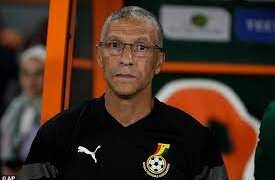The Executive Director of Crime Check Foundation (CCF), Ibrahim Oppong Kwarteng has appealed to government to absorb the cost of kidney treatment for the poor.
He said kidney diseases are among the most neglected non-communicable chronic diseases that constitute a huge financial burden, which is beyond what many average Ghanaians can afford.
Mr. Kwarteng was speaking at CCF’s end-of-year party organized for hundreds of its beneficiaries under its Health Check, Street Charity, General Charity, Educational Support series, and Prison series.
The event was held in Accra on Wednesday, 22nd December 2021.
Citing some kidney patients CCF has supported through its donors, Mr. Kwarteng reminded the general public and Government about the upsurge in kidney diseases among all age groups while treatment centres remain inadequate.
According to him, the cost of dialysis is expensive and many kidney patients are unable to afford the treatment without financial support of individual and institutional donors.
He, therefore, appealed to government to consider taking the full treatment cost of kidney diseases under the National Health Insurance.
“In recent times there has been a rise in kidney disease and many of the patients cannot afford its treatment. A patient has to be on dialysis three times in a week and each section cost around Three Hundred and Fifty Ghana cedis, so you can imagine how many time the average Ghanaian can afford the treatment. Many of the patients die as a result of the cost. Government should consider adding it to the National Health Insurance Scheme to reduce the burden as we also do our part,” he said.
He expressed gratitude to individuals and organizations home and abroad, through whose benevolence CCF is able to provide medical, monitory, and material support to kidney patients and many other poor and vulnerable persons in 2021.
About CCF:
Crime Check Foundation (CCF) is a crime prevention advocacy organization that uses Life in Prison Documentaries to sensitize the public to the dangers of crime. Our programs have achieved good outcomes in Ghana. Our Time with the Prisons Series has brought to the fore the congested nature of Ghana’s 46 prisons and other infractions perpetrated by some members of the justice delivery chain. Our Petty Offenders project has resulted in the release of over 2000 petty offenders, while our Ex-Convict Reintegration project has successfully reintegrated most of them into society. Our Health Check, Street Charity, General Charity, and Educational Support Series have brought immense relief to the many who may have died or dropped out of school.
By Cosmos Akorli




















































